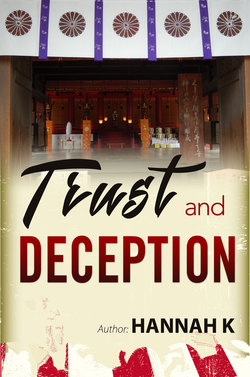Читать книгу Trust and Deception - Hannah K - Страница 10
На сайте Литреса книга снята с продажи.
Democratizing Process
Оглавление“Tenno” in Japanese is most often than not translated into “the Emperor” in English. The role of the Emperor in the Imperial system of the Japanese Empire had greatly resembled that of the Imperial System of the Qing Empire (1616-1912) in China, especially before Sino-Japanese War (1894-1895). After the War, the Meiji Regime discarded much of the Qing Empire ruling system with the bureaucratic system, and tried to copy Prussia. Therefore, from the beginning of Meiji Regime until the end of the Pacific War, Tenno meant three Emperors. I would like you to understand the difference between the emperor in the Japanese Empire and Tenno in the traditional kingdom and present Japan.
In the first place, the Imperial system in the Meiji Era as well as the Qing Empire was based on neo-Confucianism. The original role of Tenno had never been defined under neo-Confucianism until the Meiji Restoration, when Tenno was defined as the “supreme existence,” that is to say, “the Emperor.”
Owing to the tremendous data on Japanese culture, Supreme Commander, Douglas MacArthur knew the original meaning of the role of Japanese Tenno. He considered that the existence of Tenno was crucial to Japanese society to avoid political conflicts. At the same time, he was well aware that the original role of Tenno in ancient era was to settle disputes among powerful clans. In other words, ancient Tenno’s role was the possessor of holy law to settle down the conflicts.
In the present Constitution of Japan, the Imperial Household is apart from politics and is not allowed to make political statements in public. However, what Douglas MacArthur had in mind was to unify Japan as a modernized country. His intention was not to occupy Japan and humiliate Japan as a third-world country but to modernize Japan during period of occupation. To democratize Japan, it was necessary for MacArthur to define Shinto as a religion not as moral codes. Shinto was defined differently in the course of time depending on the period in Japanese history. At the same time, Shinto rituals and customs were deeply related to people’s daily lives. I believe that Douglas MacArthur considered that Shinto was the founding principle or important value for the Japanese people.
A lot of journalists and teachers seem to misunderstand this part. Douglas MacArthur wanted to abolish the slavery condition that people had to go through during the Pacific War. This is one of the main reasons why Douglas MacArthur decided to define Shinto as a religion because Shinto was made use of as the moral codes of the Military Regime of the Japanese Empire.
Thanks to this accomplishment, Japanese politics is now free from the influence of Shinto because Shinto is a religion. At the same time, the existence of Tenno is clearly defined as a symbol of unity of the country apart from politics in the present Constitution. This means that Japan has become a politically democratized nation with the new definition of Tenno.
